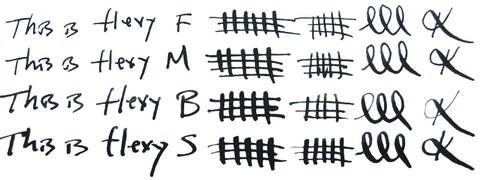Danitrio Deer Maki-E on Densho Fountain Pen
Starting at $360/mo for 6 month no-interest installments, 10% down using 
Learn about our Payment Relief Plan. |
|---|
Couldn't load pickup availability
✓ 100% Genuine Urushi
✓ Contains the Maki-E Red Seal (Highest Quality of Maki-E Art)
✓ Hand-painted by highly-trained Japanese Artisans


This pen is inspired by a waka (poetry in Japanese) written by Sarumaru Dayu that was incorporated into the classic anthology Hyakunin Isshu, which is composed of 100 poems by 100 poets.
The autumn-themed poem's characters are captured in maki-e on the cap of this pen, presented in Japanese traditional reading direction of right to left, and the meaning is as follows:
The sadness of autumn can be felt more deeply when you listen to the cries of stags in search of love as you step through the dead leaves of autumn leaves in a remote mountain.
The deer is a symbol of good luck, longevity, and prosperity. In Shinto, they are considered the messenger of the gods.
The abalone inlaid in the eye glimmers when the light reflects off of it at just the right angle.
About Danitrio Densho Fountain Pen Series:
The Densho is a Danitrio series. Densho means "Tradition" in Japanese.
Nib Details:

This pen is furnished with an 18k Gold, two-toned #6 nib. What has been described by many Danitrio collectors as the fireball nib is an image of “Kaen-Kohai” which is a flame-shaped halo of “Fudo Myoo” (Acala, the God of Fire). This halo is commonly painted on the back of Japanese Buddhist statues.
An UrushiPen.com representative will contact you to confirm nib tip size preference (fine, medium, broad, or stub) following the placement of the order.

Technical Specification:
| Cap Length | 68 mm (2.68") |
| Cap Diameter | 17 mm (0.67") |
| Barrel Length | 133 mm (5.24") |
| Barrel Diameter | 15 mm (0.59") |
| Pen Length (Closed) | 150 mm (5.91") |
| Pen Length (Posted) | 175 mm (6.89") |
| Net Weight | 28.4 g (1 oz) |
| Net Weight (w/ink full) | 32 g (1.13 oz) |
| Filling System | Eye Dropper |
About the Artisan:






